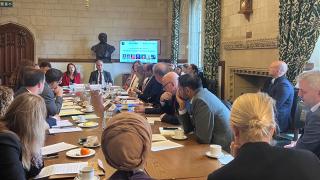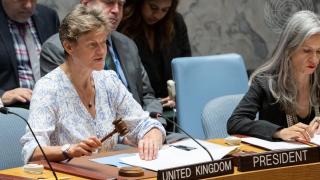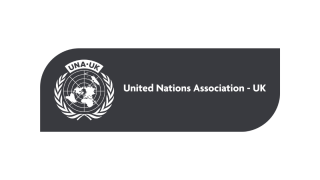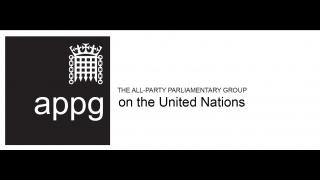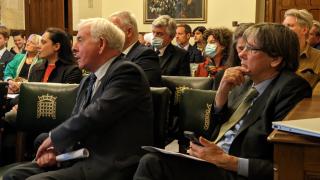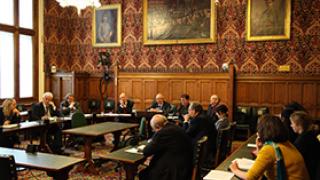
On 28 February, Minister Burt addressed a meeting jointly organised by the APPGs on the United Nations, Weapons and Protection of Civilians, and Global Security and Non-Proliferation. Chaired by Lord Hannay, the event also included two civil society speakers: Kate Allen, Director of Amnesty International UK, and Roy Isbister, Saferworld's Team Leader for Small Arms and Transfer Controls.
In the opening speech, Minister Burt updated MPs and Peers on the UK's preparations for the imminent Arms Trade Treaty Conference (18-28 March 2013) and reaffirmed the UK's resolve to strengthen the draft treaty text that emerged from the inconclusive negotiations in July 2012. Whilst the Minister acknowledged that compromises would have to be made, he confirmed that the UK would not be willing to sign a treaty that had been so watered down as to render it ineffective.
Kate Allen made a compelling case for a robust treaty that will curb the daily suffering caused by the under-regulated conventional weapons trade. She reminded those in attendance that it has taken 20 years of civil society campaigning to get this close to achieving such a treaty, and that the majority of states, including the UK, that support the emergence of a strong treaty, should not let the minority of obstructive states jeopardise proceedings at the final hurdle.
Roy Isbister warned of the dangerous impact of a weak treaty, including the legitimisation of bad practices and legal cover for arms transfers that facilitate human rights violations. Roy also advised the UK to use as leverage the fact that, should a treaty fail to emerge from the March negotiations, the majority of states in favour of a strong treaty can achieve their objective later in 2013 at the UN General Assembly where negotiations would not be bound by the consensus principle.
As he has done in the past, Minister Burt defended the use of the consensus principle, describing it as the most likely way to achieve a universal treaty that acts as a global baseline for international arms transfers.
Minister Burt also responded to a question from a representative of the Shadow Foreign Office relating to the refusal threshold for transfers that could facilitate genocide. Describing provisions in the current text as "too weak", the Minister stated that the treaty should not undermine international humanitarian law, particularly in relation to mass atrocity crimes.
Click here to read the parliamentary briefing that was produced for this meeting

